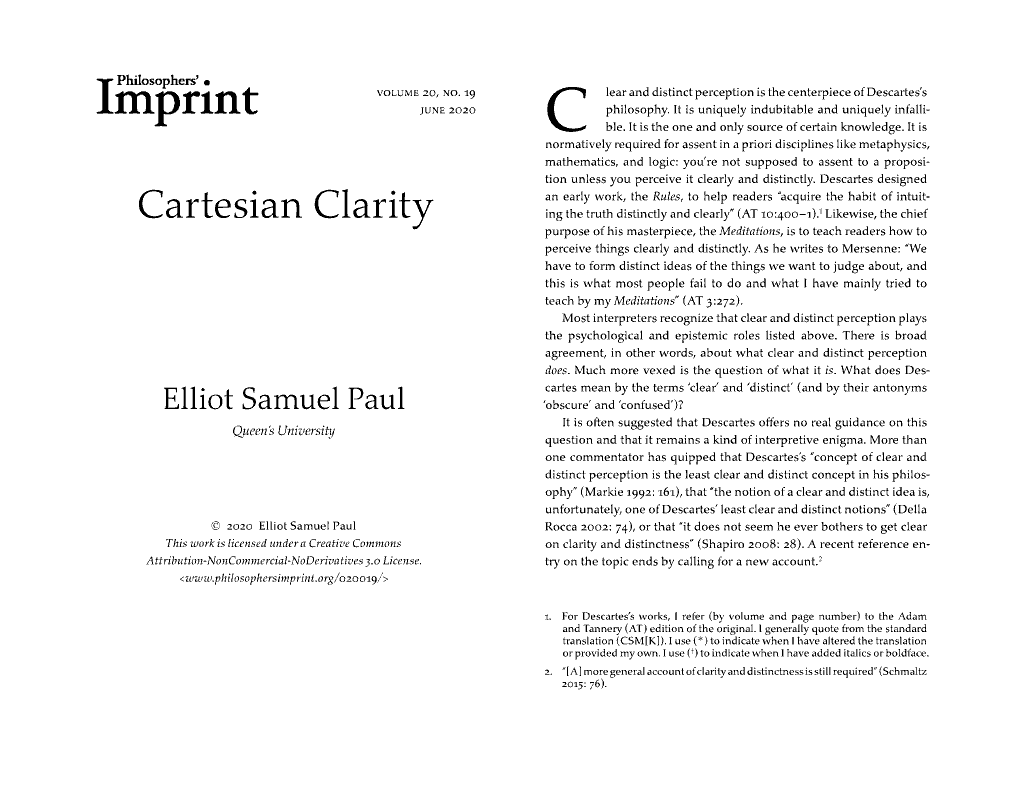Cartesian Clarity
Skip other details (including permanent urls, DOI, citation information): This work is licensed under a Creative Commons Attribution-NonCommercial-NoDerivatives 4.0 International License. Please contact [email protected] to use this work in a way not covered by the license.
For more information, read Michigan Publishing's access and usage policy.
Abstract
Clear and distinct perception is the centerpiece of Descartes’s philosophy — it is the source of all certainty — but what does he mean by ‘clear’ and ‘distinct’? According to the prevailing approach, what it means for a perception to be clear is that its content has a certain objective property, like truth. I argue instead that clarity is a subjective, phenomenal quality whereby a content is presented as true to the perceiving subject. In the special case of completely clear intellectual perception, what is presented as true must be true. Further, I argue that the other perceptual qualities that Descartes identifies — obscurity, confusion, and distinctness — are all defined in terms of clarity. Of particular note is the fact that distinctness is not a positive feature to be added to clarity: a distinct perception is just a completely clear perception.



